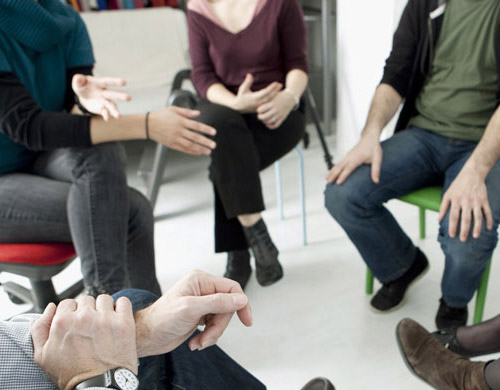It can feel so difficult when you or a loved one has a problem with alcohol or drug use, that you don’t know how to approach it. By using professional addiction rehab services it is possible to treat drug and alcohol addiction just like other illnesses and achieve long term sobriety.
Our Guide will detail how integrating addiction treatment approaches can encourage long-term recovery for yourself or a loved one.
What is Addiction Rehab (Rehabilitation)?
When we refer to addiction ‘rehab’, it encompasses the psychological interventions and medical treatments needed to tackle dependencies on substances such as prescription drugs and illegal drugs including meth. Rehab that is unique to your personal needs is successful when it includes medically-managed detox, inpatient programs, outpatient programs and relapse prevention techniques.

Facts & Statistics about Addiction in Santa Clarita
Prevalence of Substance Use Disorder, by Drug Type
(IN THOUSANDS)
- 2,7578.5%Any Substance
- 2,0886.4%Alcohol
- 1,0683.3%Ilicit Drugs
- 2060.6%Pain Medication
Drug- and Alcohol-Induced Deaths by Age Group, California, 2016
- Alcohol-Induced
- Drug-Induced
- 18 to 250.5
- 9.6
- 26 to 354.3
- 13.9
- 36 to 6424.2
- 22.9
- 65+23.7
- 9.4
Drug Use, by Selected Type and Age Group California, 2015 to 2016
- 12 to 17
- 18 to 25
- 26+
- Marijuana*13.2%
- 34.0%
- 13.5%
- Misuse of Pain Medications3.5%
- 8.0%
- 4.3%
- Cocaine0.8%
- 7.2%
- 1.8%
- Heroin0%
- 0.4%
- 0.2%
What are the treatment options available in Santa Clarita?
An integrated approach is considered the most effective way to address and recover from the underlying causes of substance use disorders and alcohol addiction. Even though treating the symptoms of addiction is important, you also should learn coping mechanisms to address the issues that lead to your drug or alcohol dependence.

Private Residential Programs
By residing on the same property that you are receiving your addiction treatments in, you are taking part in a residential rehab program. The main benefit is the ability to have holistic support and treatment throughout the day.
By taking yourself away from your home and living at the rehab facility you can protect yourself from the triggers that contributed to your drug or alcohol dependence. By having an environment around you that is supportive, you reduce the chance of relapse and you are more likely to finish your residential treatment programme. Clients who are struggling with dual diagnosis, co-occurring disorders and severe substance dependencies are strongly advised to enroll for an inpatient treatment program.
Taking part in a residential rehab program is an effective way to a sober life, and sustaining it requires ongoing focus because addiction recovery is challenging during the first few months. After you complete your residential addiction treatment program your priority will be on transitioning to greater independence as you consider what you want from your new sober life.
Do You Need Help?
Our addiction advisers are here to help you.

Sober Living Programs
Sober living rehab programs enable you to have more control over your life, through guidance and supportive structures. Sober living programs comprise of:
- A house manager who will visit you daily
- Guiding you on the best way to behave in recovery
- Encouraging important relationships with others in recovery who can empathize with your experiences
Outpatient Programs
The flexibility of outpatient programs means that you do not have to stop attending your workplace or family commitments, as you can attend the rehab facility and undergo weekly treatments at your own pace.
Outpatient programs should provide you with:
- Education about substance dependence
- Therapeutic support and counseling in the form of group therapy and one-to-one interventions – The duration of an outpatient program is customized to your circumstances and lasts from three months to over a year.
Detox Only Programs
Most patients require a medical detox to commence drug rehab, because it tackles physical dependence on substances by removing it from your body. As your body stabilizes without the substance in your system, you typically experience the symptoms of withdrawal.
Withdrawal marks the start of the rehab recovery journey, and must be followed up by overcoming the main reasons for your dependency, to avoid repeating the same pattern of behaviors. Quite a few substances cause protracted cravings and withdrawal symptoms after you have been through drug or alcohol detox. Your odds of relapse are reduced as you build on the necessary skills required to cope with your new life.
Paying for Private Treatment
If you decide to to opt for private rehab, you will need to pay for treatment yourself or make a claim through your health insurance provider.
Many insurance companies will cover at least parts of your rehab treatment, including medical detox, a rehab program, and any medications you may need. The amount you can claim will be set by your provider and your policy agreement.
We advise that you confirm the amount covered for treatment prior to enrolling for treatment. Check out our Verify Your Insurance page – https://www.unitedrecoveryca.com/verify-your-insurance/ – to find out about the cover you qualify for.
If you do not make a claim from your policy you must pay upfront for your rehab treatment. It may be possible to opt for a payment plan if the total cost is a barrier to you receiving treatment.
Find out if you’re eligible through private health insurance
State Funded Programs
State-funded rehab programs are useful for those who are battling with alcohol or substance addictions and who may not have the financial means to fund private treatment. These programs use government funds from state budgets, Medicaid and federal government to support recovery by offering:

- Safe & confidential medical detox
- Addiction treatment programs which includes extended care
If you are not supported by private health insurance or you do not have access to funds, you can consider applying for a state-funded rehab program. You have to provide:
- Proof of low income
- Proof of where you live
- Your personal medical details regarding your drug or alcohol misuse
- Proof you can live in the US legally
Visit https://www.grants.gov/ for more details about the application process. You can also locate direct contact details for your state agency by clicking here
The following state-funded addiction rehab programs are available in Santa Clarita:
Valley Recovery Center California Recovery Center
23304 Happy Valley Drive, Newhall, CA 91321
818-571-9841
http://www.valleyrecoveryandtreatment.com/National Council on Alc and Drug Dep San Fernando Valley
24460 Lyons Avenue, Newhall, CA 91321
661-253-9400 x110
http://www.ncadd-sfv.org/Safety Consultant Services Inc
24506 1/2 Lyons Avenue, Newhall, CA 91321
661-255-7720
http://safetyconsultantservicesinc.com/
Maintaining Addiction Recovery in Santa Clarita
Maintaining your recovery can be difficult when returning to normal life after leaving the treatment center. At rehab you were in a professionally supported, safe environment. Your coping skills will be put to the test when you leave rehab, as you may experience some challenges that you still need to learn to deal with. If you experienced a severe dependency and have not developed a social structure to return to when you leave rehab, you may find long term recovery more of a challenge. Guidance and aftercare support is integral in the early stages of recovery to help prevent relapse.
The following AA/NA meetings are available in Santa Clarita:
AA - Daily Reflections Open Discusion
Big Book and Open:
24307 Railroad Avenue, Santa Clarita, CA 91321
Saturday: 12:00 pm – 1:00 pm
https://alcoholicsanonymous.com/WHEEL OF RECOVERY (1HR)
Open and Participation:
Salvation Army, 22935 Lyons Ave, Santa Clarita, CA 91321
Tuesday: 7:00PM
https://www.scvna.com/physical-meetingsLOSE YOUR ILLUSION (1HR 10MIN)
Open, Wheelchair, Participation and Topic:
26330 Diamond Pl Suite 120/130, Santa Clarita, CA 91350
Wednesday: 7:45 PM
https://www.scvna.com/physical-meetings
Aftercare & Alumni Programs
Aftercare programs provide extended support to you when you leave the rehab center. Because no one can predict what’s going to happen from one day to the next, as many as 60% of clients in recovery sadly relapse, this makes ongoing aftercare an essential part of recovery.
When your treatment draws to an end, we will help identify the therapies and counseling most useful to your long-term recovery and any appropriate aftercare provisions will be created to assist you. After the successful completion of your addiction treatment program you will be eligible for joining an alumni community program so you can remain close to staff and others in recovery.
You can attend Alumno events, join initiatives and receive support and encouragement from other ex-clients who are also in recovery as well. You may also like to return the favor by showing support towards others in recovery.
Support Groups (Fellowship Meetings)
Support groups continue to be an integral component of long-term recovery because social responsibilities inspire long-lasting sobriety.

The 12-steps are is maintained by support groups like Narcotics Anonymous and Alcoholics Anonymous which have a long history in supporting people in recovery by providing group meetings. Attending support group meetings provides you with an opportunity to you to learn from other individuals and inspire others with your own experiences. Friendship, empowerment and taking responsibility for our actions are key to long-term recovery, and meetings provide many with the necessary tools to stay sober.
Support for Families & Children Affected by Addiction
Everyone living in a household with addiction issues are affected, in various ways, by its impact. It’s not only the person with the addiction who is impacted, the other people in the family need help as well. By joining family support groups, families will manage stressful situations more efficiently, and be able to provide better to your loved one in recovery.
Your family members may benefit from support groups like:
- Parents of Addicted Loved Ones
- SMART Recovery Family & Friends
- NAMI Family Support Groups
- Al-Anon
- Families Anonymous
- Alateen
- Nar-Anon










